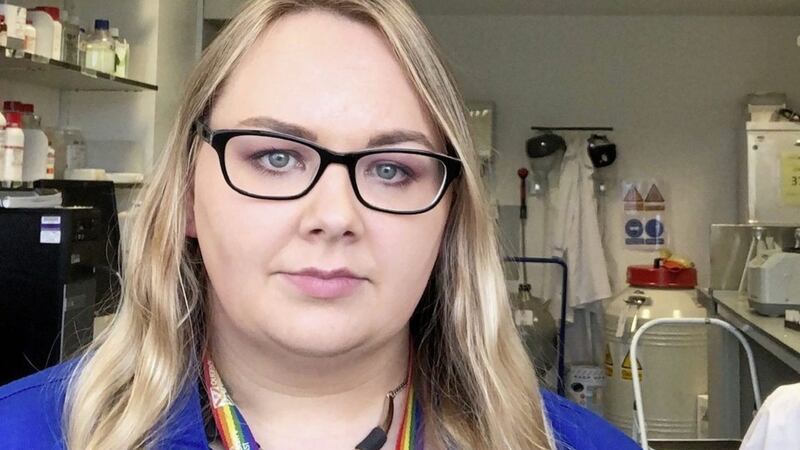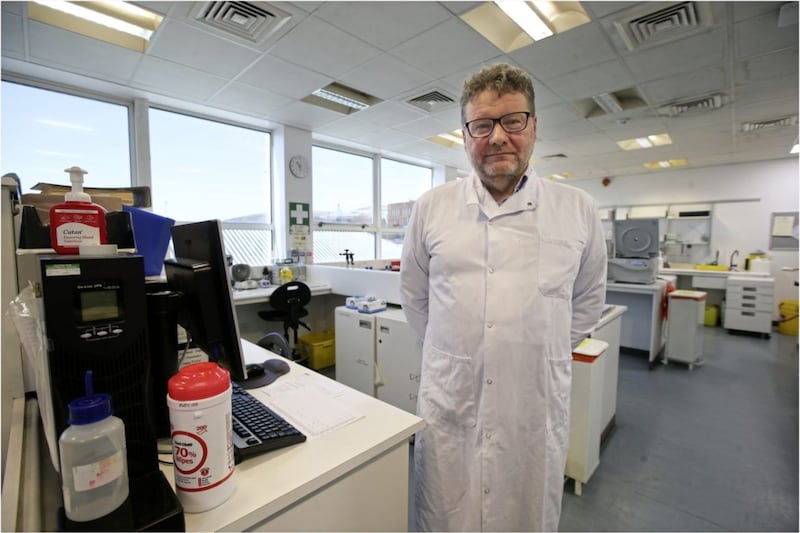A LEADING virologist has warned that 70 per cent of the population will "probably" be infected with coronavirus within the next year - but stressed it will present as a "very mild" illness in most cases.
Dr Lindsay Broadbent, who is based at Queen's University Belfast, said that it will take at least 18 months to develop a vaccine and that the major focus should be on "slowing down" its spread.
The researcher also urged those who used public transport and may have come into contact with the woman who was the first person to test positive for coronavirus in Northern Ireland "not to panic".
"To be in the same room talking to someone for 15 minutes is the general rule of thumb for transmitting this virus. For every one person infected, they will infect on average about two other people," she said.
"If there a person sneeezing or coughing or talking on their phone quite loudly directly across from someone, that could transmit the virus. If people are concerned if they were on a plane or train or bus, they just need to be very aware of their own health for the next couple of weeks. They need to ring their own GP."
It is understood the woman and her child flew to Dublin from northern Italy during the week.
The couple then took a bus from Dublin airport to Connolly train station in the city centre, from where she got the Enterprise train to Belfast.
The academic added: "I think people don't have to worry if they were on a train or buse because the likelihood is they'll be fine. You need to have incredibly close contact with person, you need direct contact with the tiny water moisture droplets when they cough or sneeze or you need to have touched a surface that they have sneezed on".
Dr Broadbent said the people most at risk are the elderly and those with underlying health conditions.
"If you are in doubt about symptoms, don't go visiting your elderly granny or parents for a week or too. Get someone else to check in," she added.
The outbreak has killed around 2,800 people, most of them in China.
Dr Broadbent said it is inevitable that the number of people infected will increase.
"What we really need to do is just try to slow it down. The theory at the moment is that probably 70 per cent of the population in Northern Ireland will be infected within a year," she said.
"However, it's not really anything to worry about at this stage because it doesn't look to be affecting the majority of people severely. In most cases it causes a very mild illness.
"There's not much difference between it and other respiratory diseases and other communicable diseases. So I think we have to be quite careful not to panic."
But the researcher said the virus is unique from other seasonal flu illnesses due to the higher death rate in those over the age of 70 - and the fact there is no treatment or vaccine.
In adults under the age 60 and children, the death rate is 0.2 per cent, which is the same as seasonal flu. In elderly people it goes up to 14 percent - which the overall average death rate around two per cent..
"We will probably now see small clusters develop across Northern Ireland and the Republic and the rest of the UK.
"This is one of the main reasons whey we need to slow it down so that it gives research scientists and bio-tech companies more time to develop vaccines and treatments. It can take quite a long time to test. The quickest a vaccine could be available is 18 months and that's a best case scenario...in the meantime people should follow the public health advice."







